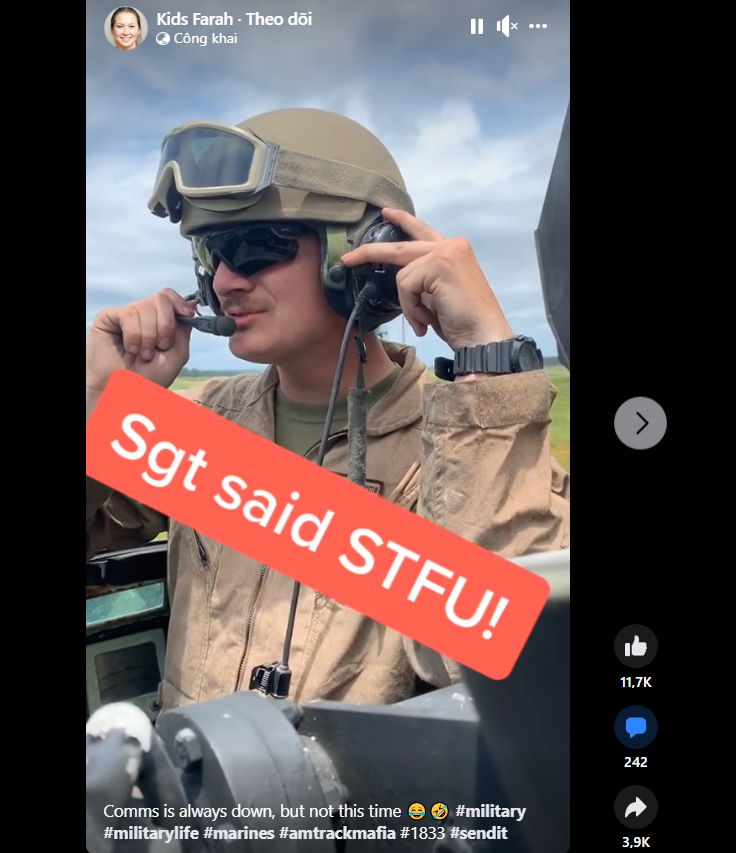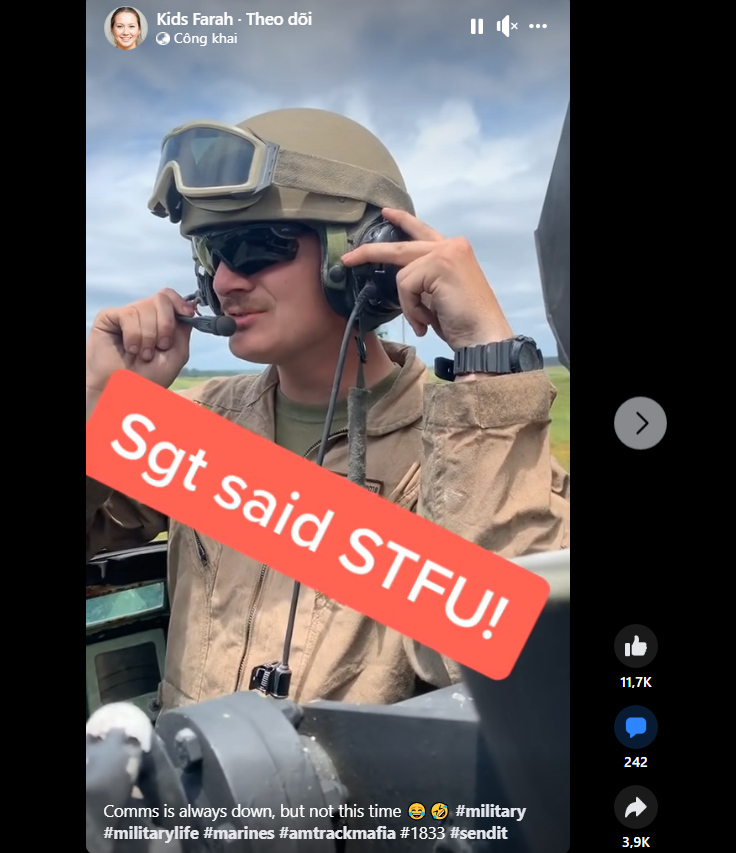NEXT PART AT THE END OF THE ARTICLE
When communication devices fail on the battlefield, the reactions of infantrymen can mean the difference between success and failure. In modern warfare, where coordination and rapid response are paramount, the loss of effective communication can pose a significant challenge.
In the modern battlefield, where advanced technology plays an integral role in military operations, the reliability of communication devices is paramount. These devices are the lifeline of infantrymen, enabling them to coordinate, receive orders, and maintain situational awareness. However, in the chaos of combat, when communication devices fail, the reactions of infantrymen become critical factors in determining the outcome of a mission and, potentially, the safety of their fellow soldiers.

When faced with communication breakdowns, infantry units are trained to adhere to established protocols. These protocols often include attempting to troubleshoot and restore the equipment on the spot, ensuring that it is properly powered and connected. If the issue persists, they may switch to alternative communication channels, such as backup radios or satellite phones, to maintain contact with their command and fellow soldiers.
Maintaining discipline and composure is crucial during these moments of crisis. Infantrymen are trained to remain calm and composed, as panic can lead to poor decision-making and compromise mission objectives. In some cases, they may resort to non-verbal signals and hand gestures to convey essential information to their teammates.

1. The Dependence on Communication Devices:
Infantrymen heavily rely on a spectrum of communication tools, including radios, encrypted devices, and satellite communication, to maintain contact with their squad members, platoon leaders, and higher command. These devices enable real-time updates, coordination of tactics, and sharing of critical intelligence.
2. The Dangers of Device Failures:
Communication device failures can result from various factors, including electronic interference, damage during combat, or software glitches. When these devices cease to function, infantrymen face a host of immediate challenges:
- Isolation: The loss of communication can isolate units on the battlefield, leaving them unaware of the larger tactical picture and vulnerable to ambushes or flanking maneuvers by the enemy.
- Confusion: Lack of communication can lead to confusion, misinterpretation of orders, and a breakdown in coordination, potentially causing friendly fire incidents or ineffective maneuvers.
- Delayed Response: Without functioning communication, infantrymen may not receive critical information, such as changes in the mission, updates on enemy movements, or medical support requests.
- Psychological Impact: The stress and anxiety resulting from communication failures can affect infantrymen’s mental resilience, leading to decreased combat effectiveness.
3. The Importance of Training:
The reactions of infantrymen in the face of communication device failures are shaped by extensive training. Soldiers are taught to maintain situational awareness, employ alternative communication methods (e.g., hand signals or runner relay), and adapt to rapidly changing circumstances. Quick thinking and decisive action are paramount.
4. Adaptability and Initiative:
Infantrymen are trained to be adaptable and take initiative in the absence of communication. They must make tactical decisions based on their training, experience, and their understanding of the mission’s intent. This adaptability is essential for mission success.
5. The Role of Leadership:
Effective leadership is critical when communication devices fail. Leaders must provide clear guidance, maintain composure, and use alternative methods to keep their units cohesive. Leadership also involves requesting support or reinforcements through higher command channels, if available.
6. Technology Redundancy:
To mitigate the risks associated with communication failures, modern military forces often employ redundant systems and protocols. This includes carrying backup communication devices, establishing preplanned rally points, and practicing procedures for when primary devices fail.

7. Lessons for Civilian Life:
The reactions of infantrymen in the face of communication device failures can provide valuable lessons for civilian life. Adaptability, clear leadership, and the ability to think on one’s feet are skills that can be applied in a wide range of situations, from emergency response to teamwork in challenging environments.
In conclusion, when communication devices fail on the battlefield, the reactions of infantrymen become pivotal determinants of mission success and the safety of soldiers. Their training, adaptability, and leadership are essential factors in overcoming the challenges posed by such failures. Beyond the military context, these experiences also offer valuable insights into the importance of adaptability and quick decision-making in various aspects of life.
Additionally, the ability to adapt and think on their feet is a hallmark of effective infantry units. They are trained to improvise, overcome obstacles, and find creative solutions to unforeseen challenges. This adaptability ensures that even when communication devices fail, the mission can continue with minimal disruption.

